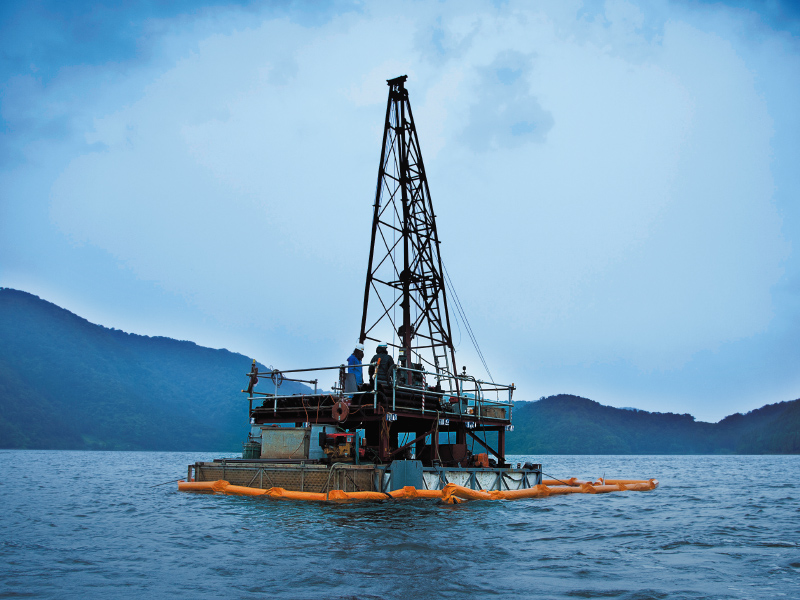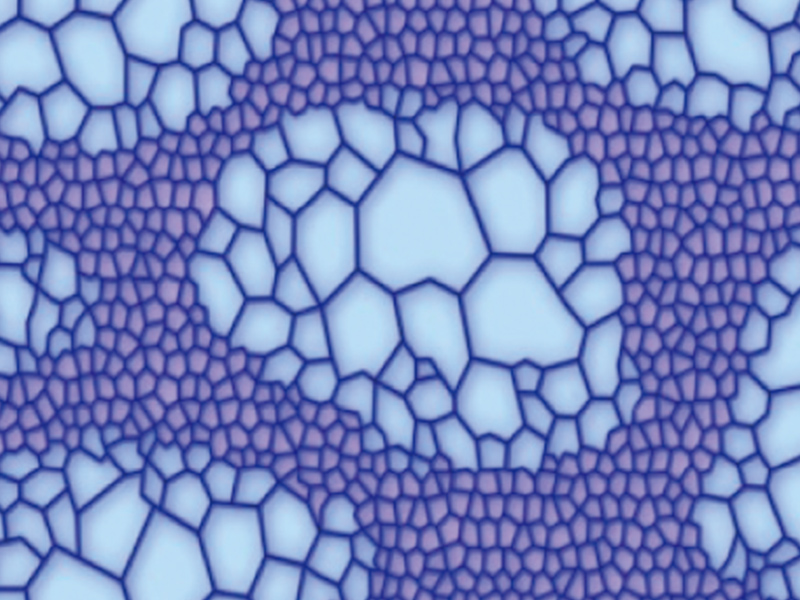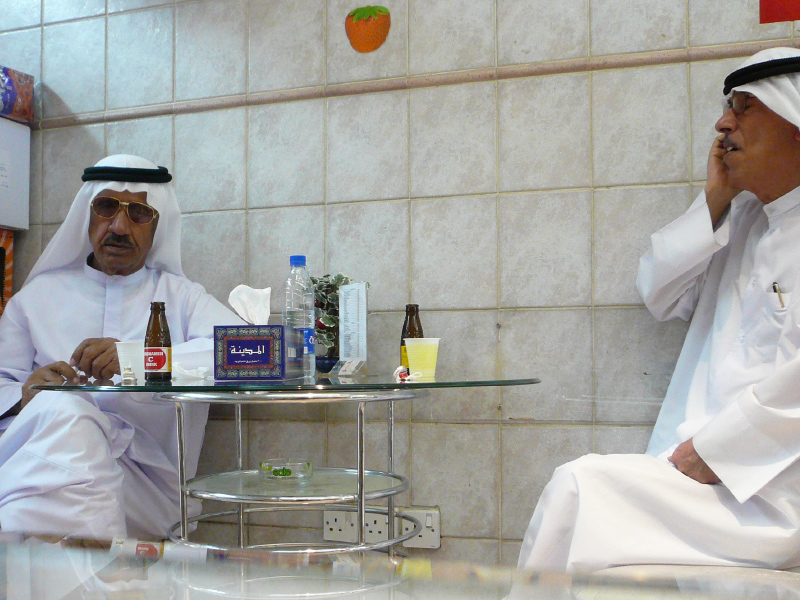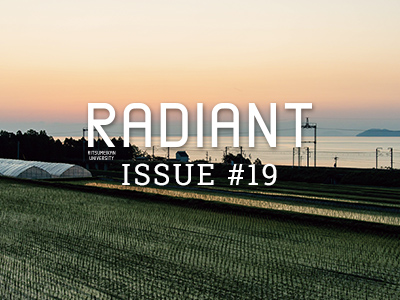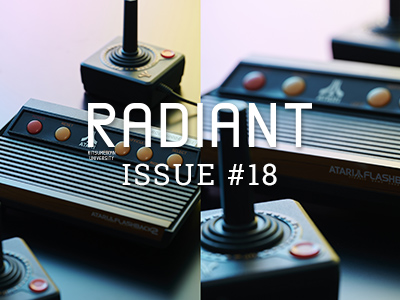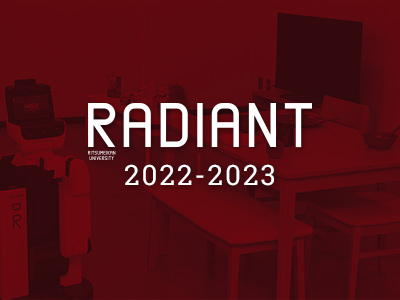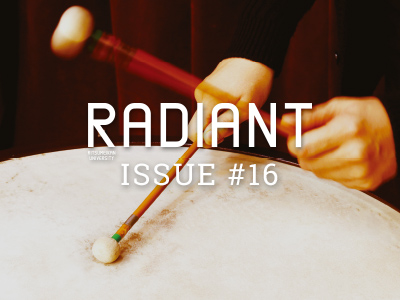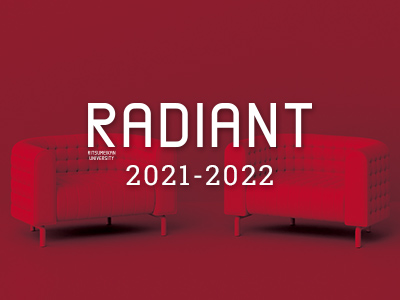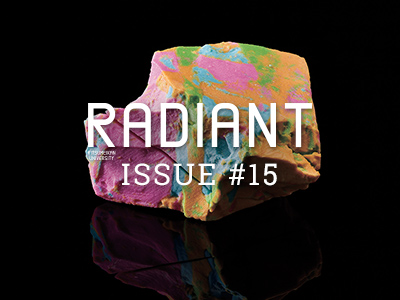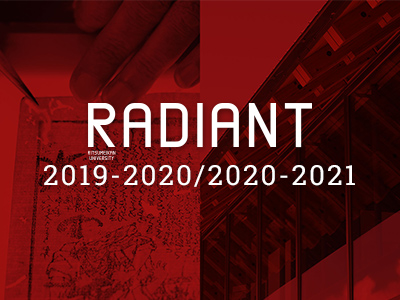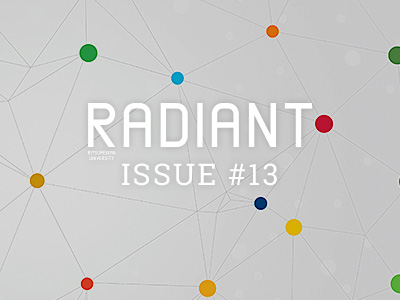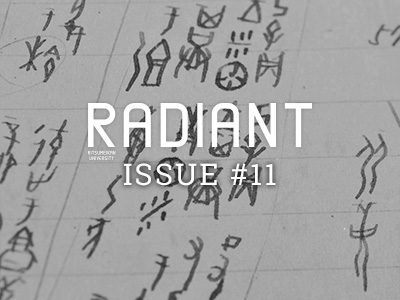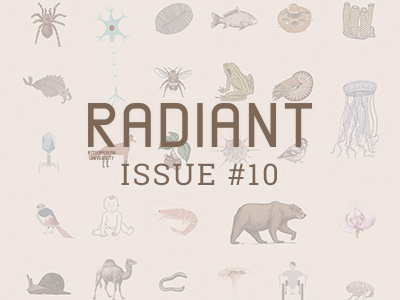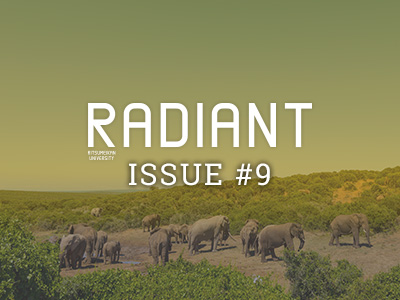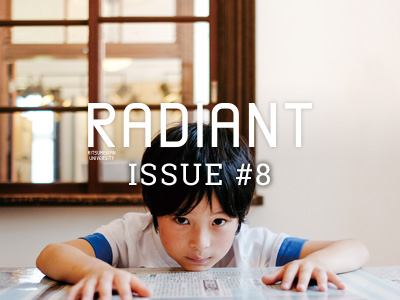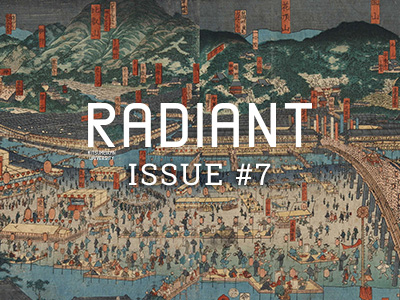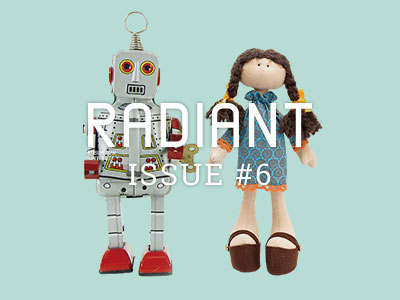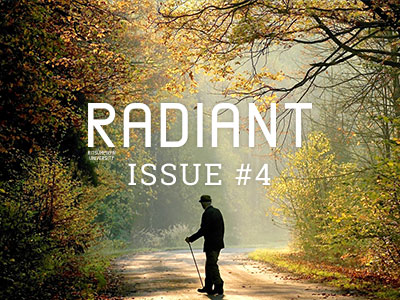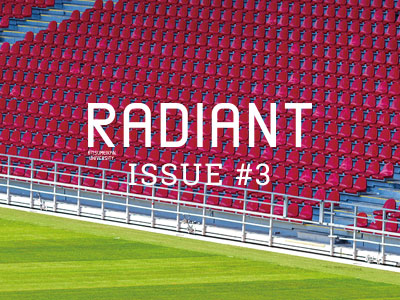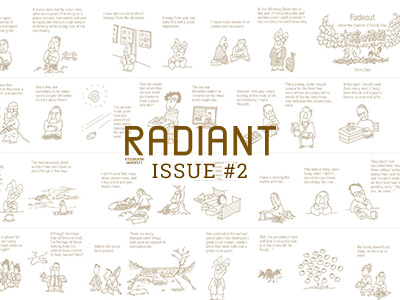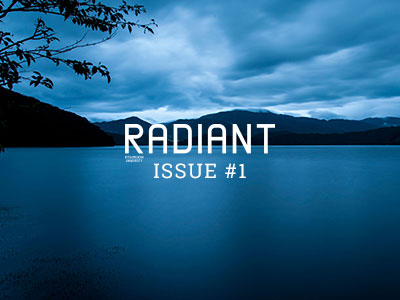STORY #6
Bridging the Gap between the Middle East and East Asia through Islamic Studies
Yasushi Kosugi
Professor, Ritsumeikan Asia-Japan Research Organization/Asia-Japan Research Institute
The 21st century is the era of Asia. After taking second billing to Europe in 20th century, Asian civilization and culture have shown remarkable growth and revival in the last few decades. “It is the time to reconsider and revaluate what role in the history Asia has been playing,” remarks Yasushi Kosugi, an Islamic area study expert.
Kosugi, the director of the Asia-Japan Research Institute of the Ritsumeikan University, recollects that the institute was established in 2015 as a token that represents the university’s global research viewpoint, with a mission to contribute to a better world by understanding the past legacies and the present prospects of Asian culture. It is a hub for researchers from diverse research fields including Asian history, culture, religion, and sociology, of Japan in particular and Asia overall, and it participates in the international and interdisciplinary multilingual online forum Meridian 180 as its Japanese branch and formal partner.
Kosugi, who is also a member of the university's Center for Middle Eastern and Islamic Studies, has been interested in the Middle East, a transcontinental region that includes western Asia, west of India, and northern Africa, all of which are regions that have cultivated their original cultures since the rise of Islamic faith in the early 7th century, and that have been bridges between Europe and eastern Asia on some occasions, and obstacles that block their interaction on other occasions.
“The Middle East and Islamic cultural spheres have been facing an age of rapid transformation,” Kosugi points out. “Arab spring began in 2010, the Syrian civil war broke out shortly after, and the so-called Islamic State started to be conspicuous around that time. They are all still new to us. There were originally discords between tribes or denominations in the area, and funding sources like petroleum attract the interference of Western powers, making the conflict much more severe and complicated.” However, although understanding this area is quite important to comprehend the current world situation, it is hard to say that most Japanese people are fully aware of the people in this area. This was the case for Kosugi as well when he started his studies in 1970s.
“The reason I wanted to learn about Islam was very simple,” Kosugi remembers. “Since people and cultures around the world are diverse, I thought having some knowledge about distant unfamiliar people and cultures can help me understand the world as a whole.” At first, it was Arabic language that drew his attention. “As you may know, present-day languages have 3 types of writings: vertical, left to right, and right to left writing. As I am accustomed to vertical and left to right writings with Japanese and English, I wanted to master right to left writing as well to complete all types of writings,” he says.
However, fulfilling his longing for “a whole new language” was not an easy task. In 1970s, internet, Arabic TV programs, and newspapers were not commonly available in Japan. Kosugi recollects that he could not even find native Arabic speakers around him except his tutor in university who was an Egyptian. “I decided to follow his advice to go to Egypt to continue my study,” he recalls.
During his first days in Egypt, Kosugi started to learn modern Arabic literature, particularly novels by nationalist writers. He at first achieved a sense of satisfaction through discussions and exchanges with Arab researchers; however, he realized gradually that ordinary Arabs at that time seldom read novels. “It is ironical, but I found myself able to conduct discussions with scholars of Arabic novels because we had similar contexts of western-originated novels. Both Arabs and Japanese imported novels as a style of literary expression from western culture,” he explains. “Japanese people had accepted western novels in the Meiji era, and at that time, most ordinary Japanese people had regarded them as guidelines for life, and not as entertainment. However, for most of Arabs, familiar works of literature meant poetries, and the compass for life was found in religion. Novels were not so much important to peoples who lived in their indigenous cultures.”
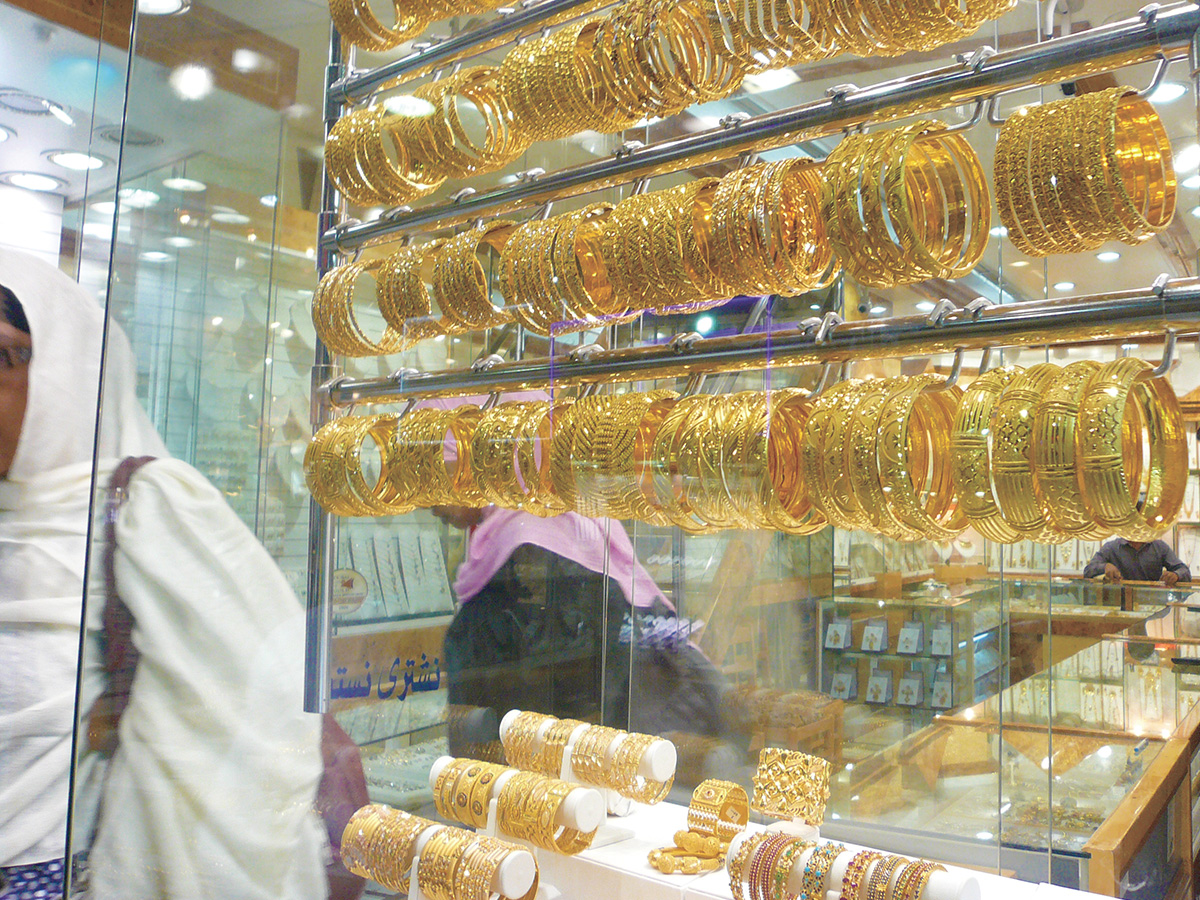
A shop in the Gold Market of Dubai: Golden ornaments for Muslim women have been a form of “portable property” in the nomadic lifestyle since the ancient times.
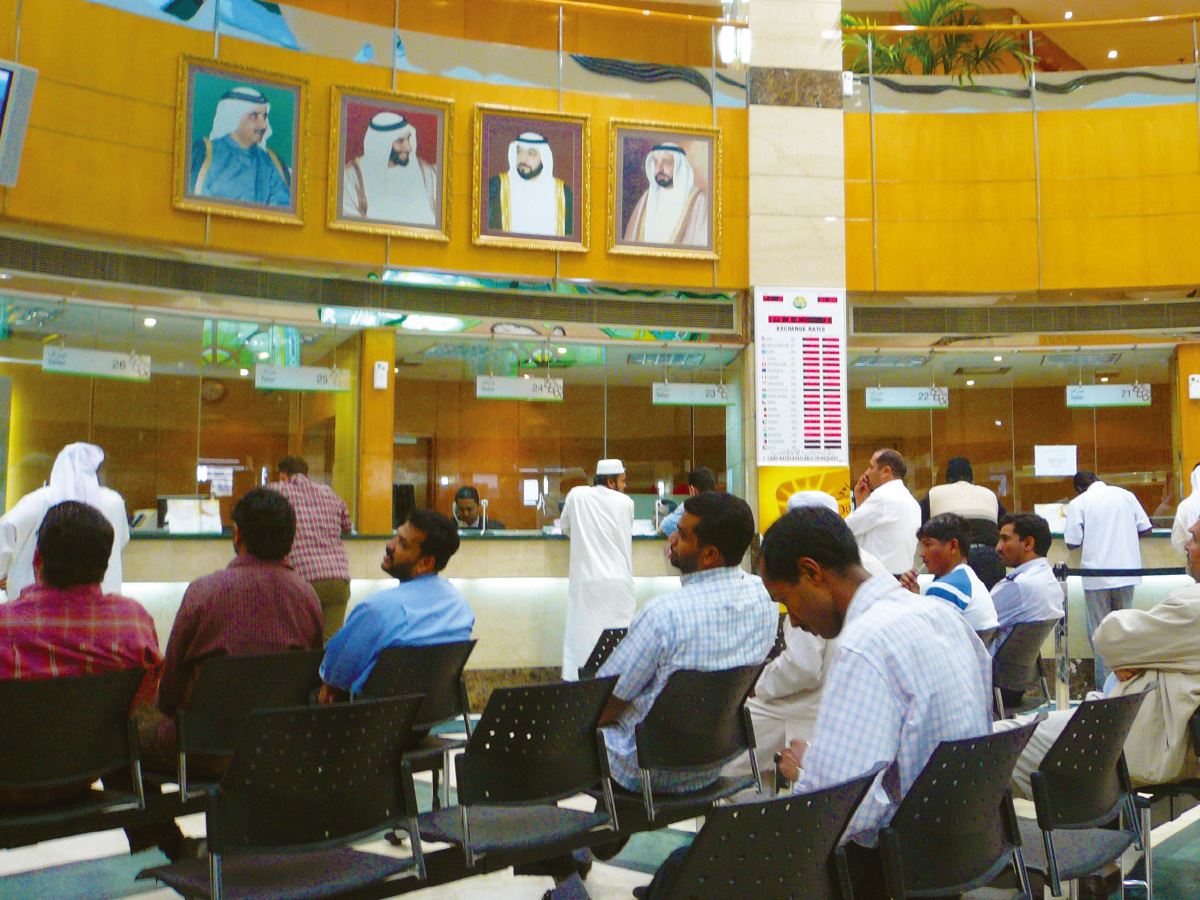
Inside a branch of Dubai Islamic Bank: Islamic banking, or interest-free finance, started in the 1970s as an alternative path of economic development.
Arab countries achieved rapid modernization in late 1960s and 1970s. Western nations were concerned that those modernization movements might have led them to socialism; some even called it the Third World revolution towards communism, but it was not what Kosugi observed in Egypt. He saw mosques being constructed one after another. “I could observe them without preconceptions and understand that it was a religious movement. That was how I was interested in the Islamic movements. I became willing to understand what Muslim peoples really think, and this was the kickstart from my Islamic area studies.”
Once he started his research, Kosugi came across countless interesting aspects of Arab countries that he had not been able to find in Japan or western countries. “One distinctive example was the idea of civilization itself. In western or Chinese-related cultures, civilizations are based on a sedentary life; so-called ‘civilized people’ settle down in cities that are fortified with outer citadels to protect them from nomads. Arab people, however, themselves had led a nomadic life for centuries. Islamic civilization, unlike other sedentary civilizations, incorporated several fundamental nomadic values. For example, nomads do not attach great value to cities, buildings, or fixed assets. They think highly of mobile assets instead, and the ultimate asset for them is language. This explains why the Islamic sacred text, the Qur’an, is always memorized and recited, and the poetry has been the major form of their literature,” Kosugi explains.
According to Kosugi, unlike Japanese and English, wordings of which had been changed greatly in middle ages, Arabic basic structures have been left almost unchanged from the days of Muhammad, the founder of Islamic faith, and Arab people can still read literature from back then that are quoted in present day documents. Ulama, interpreters of religious knowledge in Islam, are still able to master the Qur’an, the central religious text given to them by the God. They interpret its ideas of Shari'a, Islamic law, in view of modern lifestyle, and transmit them to ordinary Muslims so that they can follow them.
Kosugi complements that Islamic jurisprudence is not like the statute law set down by a legislative body such as the National Diet of Japan. “Muslim countries have their legislature as well, but the Shari’a based on the Ulama’s interpretations covers a wider range than laws: they also look at morality, ethics, and social norms. Shari'a has been criticized to be too outdated to be applied to the modern society, but most Muslims do not accept this criticism. They choose to live with religious ideas that are supported by 1400 years of history. They would have been no match for the Western culture had they abandoned Shari'a and decided to live under something new.”
In the Islamic world, culture, religions, and politics are intimately connected. Kosugi labels these relationships as the vertical differentiation of law and community, as a contrast to the horizontal separation between the state and the church in western culture. “Giving names to something I newly discovered is one thing I enjoy about this study field,” he smiles.
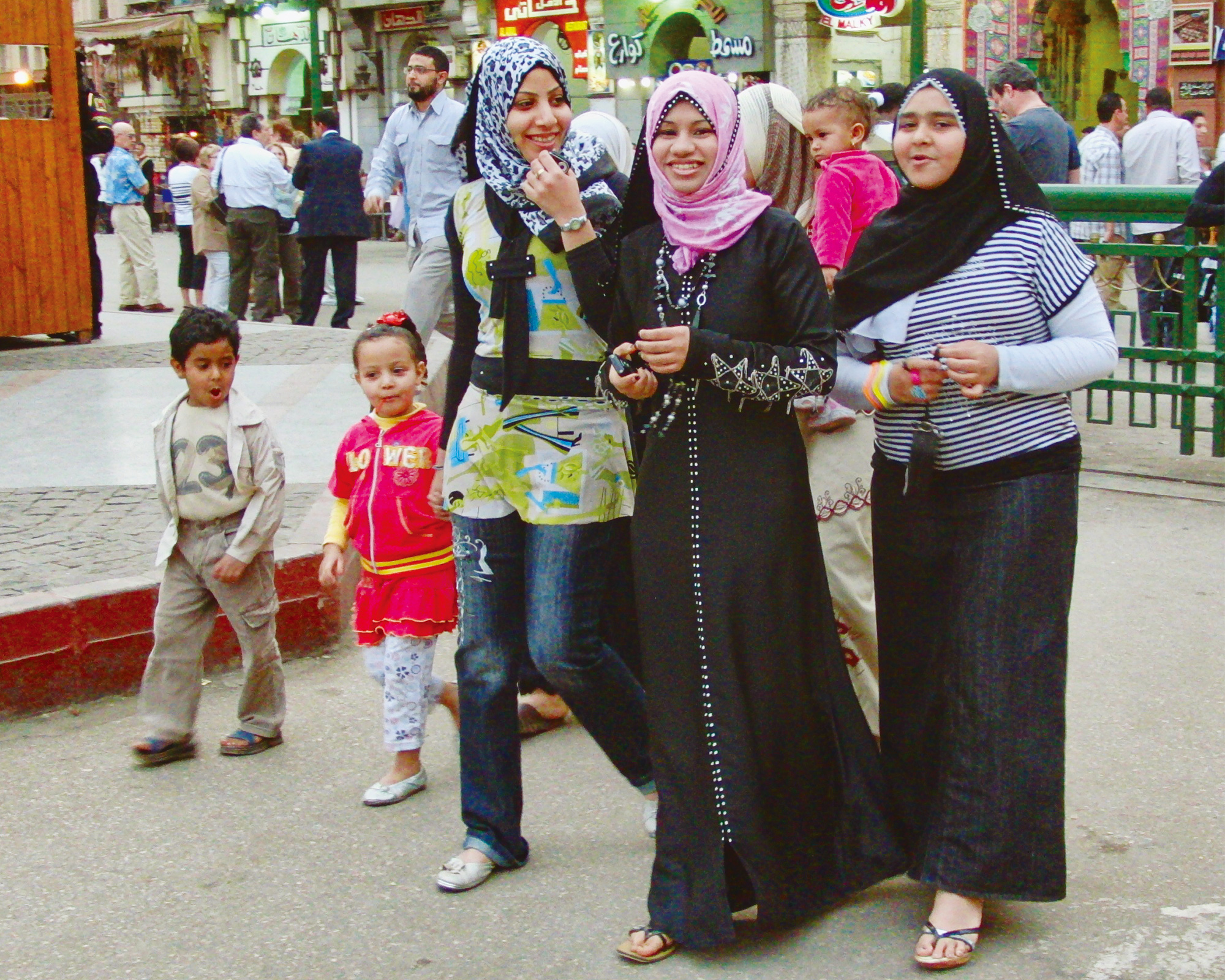
Girls in downtown Cairo: Islamic dress has regained popularity in the last four decades or so, as a new mode of religiously “cool” fashion.
Although the dynamic change and progress of Islamic world is interesting to Kosugi, he also finds himself in a dilemma between his research interest and peacekeeping in the area. He reminisces on the days before 9/11 (the al-Qaeda attacks against the United states): “Present-day Islamic faith is no more a religion only for Bedouins or worriers. It is an urban-based civilization, and I had believed that I could mediate their dialogue with western people in a ‘trialogue’ of civilizations. But after 9/11, I can no longer be fully positive about my ideas. Some Muslims are armed indeed, but not all armed Muslims are extremists. I often wonder what the difference between just-armed Muslims and the ones who use the force against others is. The latter might perhaps interpret Shari'a arbitrarily to justify their radical actions, most often without qualifications to do so.”
Islamic studies have taken place mainly in Europe and North America, and European scholars have a tendency to draw distinctions between the Islamic world and theirs to prove Western predominance. However, Japan has not been a part of Western world and is the first country in Asia to appeal to the world that modernization is not a specialty for Western countries. “We can have perspectives that are different from Western scholars, especially because we are free from the legacies of the Orientalism. We do not have to compare Islam and Europe to insist that the latter is better. Both are world civilizations, and we can learn a lot of good things,” Kosugi believes. “There is a growing number of young people who are willing to tackle the conflict in the area. I believe that it is a healthy motivation, and I would like our Asia-Japan Research Institute to be a leading research organization that supports those young researchers.”
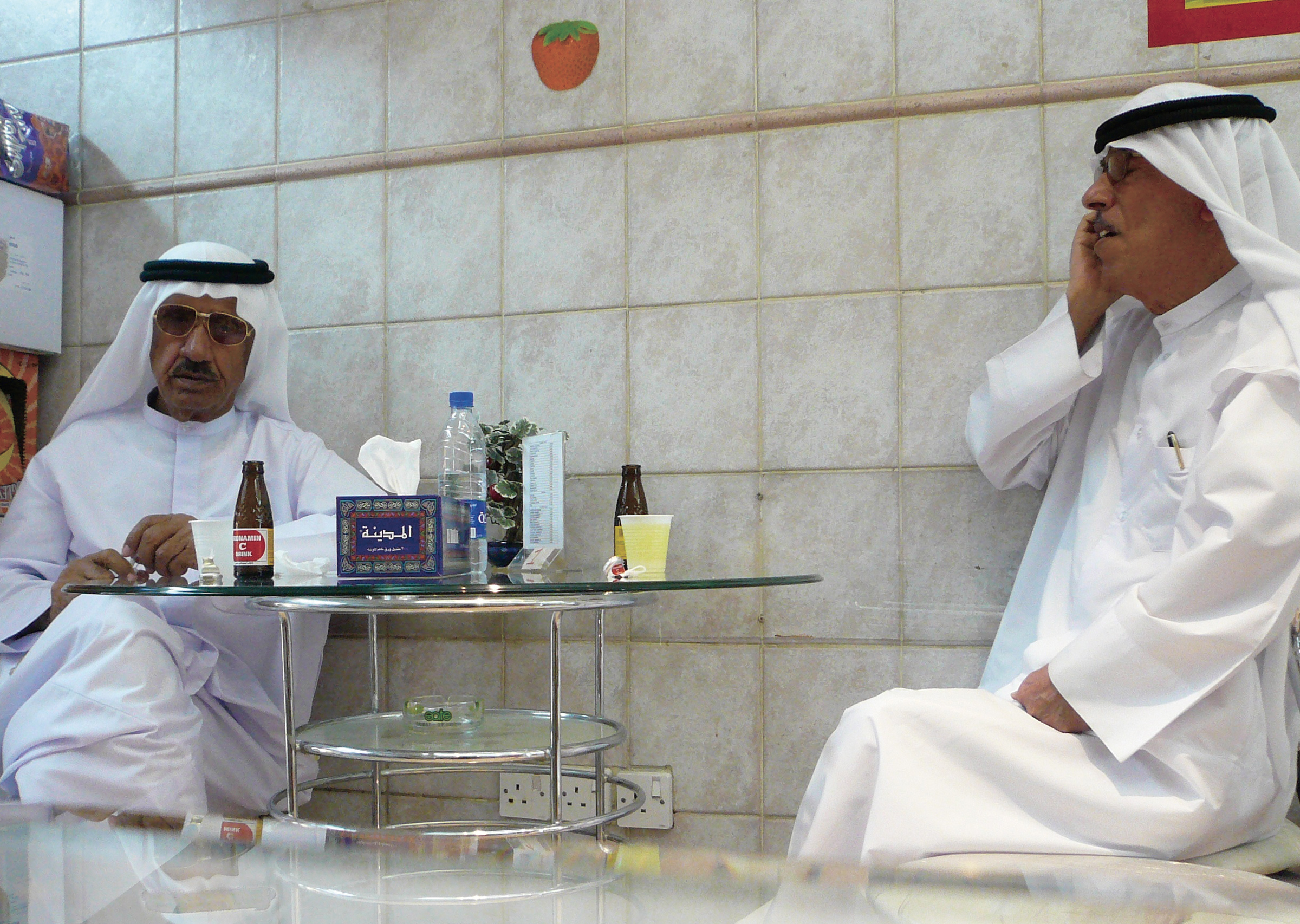
Men in a teahouse in Sharjah: The traditional Arab garments in the Gulf countries symbolize both their cultural identity and their well-to-do life in modern society.
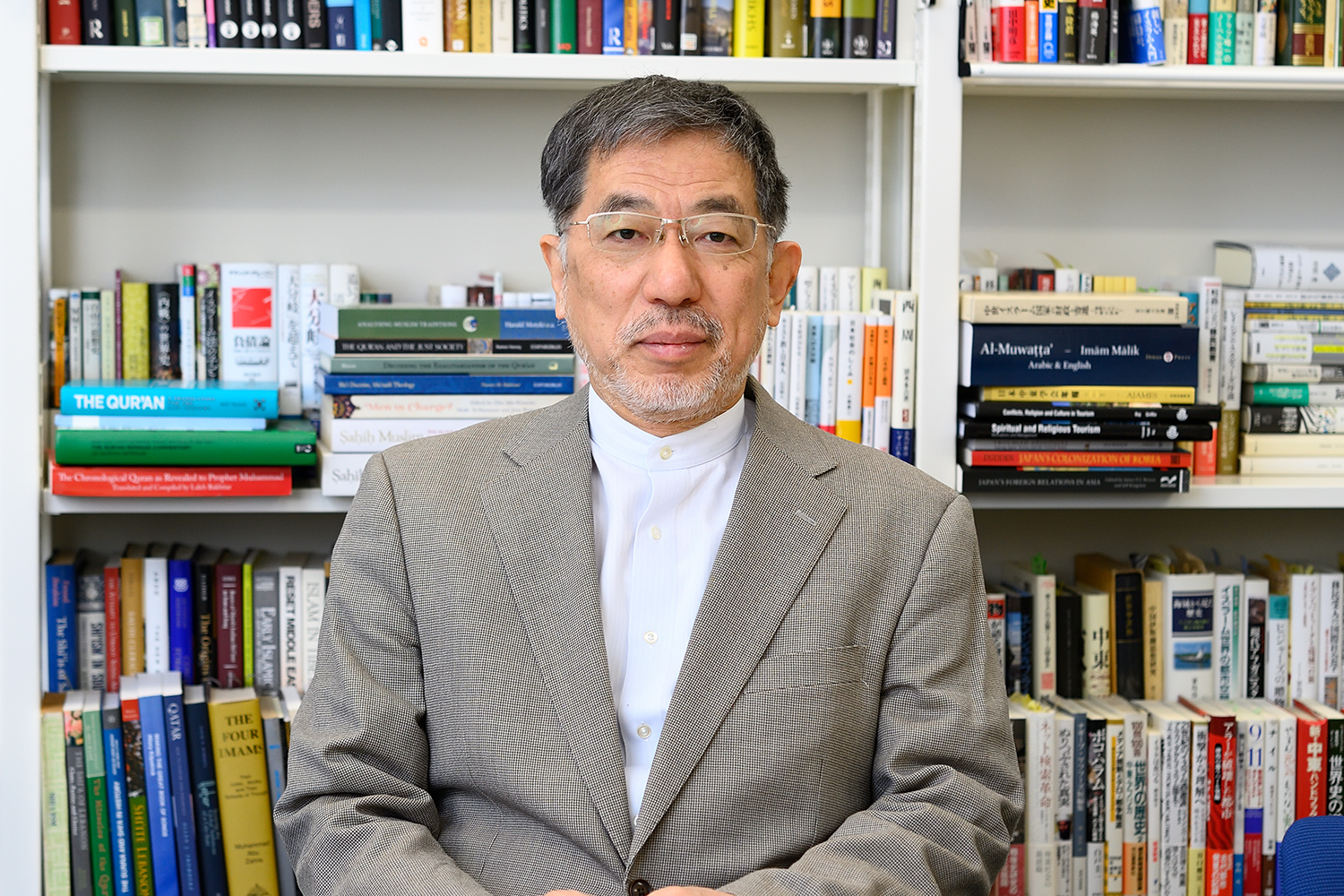
- Yasushi Kosugi
- Professor, Ritsumeikan Asia-Japan Research Organization/Asia-Japan Research Institute
- Research Themes: Islamic Law and Society, Contemporary Islamic Revival, Halal Industries in Asia
Specialties: Islamic Studies, Area Studies, International Relations
*The interview for the article was conducted in March 2020.
